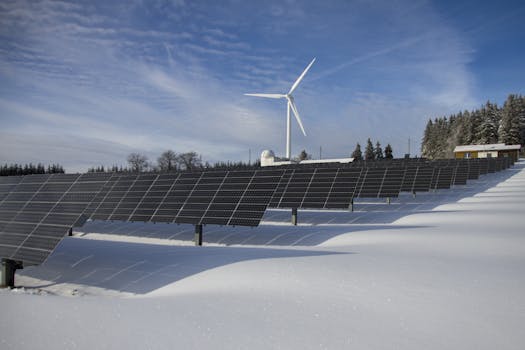How to Choose a Suitable Photovoltaic System for a Caravan or Motorhome
As the popularity of caravanning and motorhoming continues to rise, so does the need for reliable and sustainable energy solutions. A photovoltaic (PV) system, commonly known as solar panels, can provide an efficient way to power your mobile lifestyle. However, selecting the right system can be daunting. This article will guide you through the essential factors to consider when choosing a suitable photovoltaic system for your caravan or motorhome.
Understanding Your Power Needs
The first step in selecting a photovoltaic system is to assess your power requirements. Understanding how much energy you consume will help you determine the size and capacity of the solar system you need.
- List Your Appliances: Make a list of all the electrical devices you plan to use, such as lights, refrigerators, and charging devices.
- Calculate Power Consumption: Check the wattage of each appliance and estimate how many hours per day you will use them. For example, a 12V LED light bulb may consume 5 watts and be used for 4 hours, resulting in 20 watt-hours per day.
- Total Daily Consumption: Add up the watt-hours for all devices to get your total daily energy consumption.
For instance, if your total daily consumption is 200 watt-hours, you will need a solar system that can generate at least this amount, factoring in inefficiencies and weather conditions.
Choosing the Right Solar Panels
Once you have a clear understanding of your power needs, the next step is to select the appropriate solar panels. There are several types of solar panels available, each with its advantages and disadvantages.
- Monocrystalline Panels: Known for their high efficiency and space-saving design, these panels are ideal for limited roof space. They typically have an efficiency rating of 15-22%.
- Polycrystalline Panels: These are generally less expensive but also less efficient, with ratings around 13-16%. They require more space, making them suitable for larger roofs.
- Thin-Film Panels: Lightweight and flexible, these panels can be integrated into various surfaces. However, they are less efficient and require more space to generate the same amount of power.
For most caravans and motorhomes, monocrystalline panels are often the best choice due to their efficiency and compact size.
Inverter Selection
The inverter is a crucial component of your photovoltaic system, converting the DC electricity generated by the solar panels into AC electricity for your appliances. When choosing an inverter, consider the following:
- Power Rating: Ensure the inverter can handle the total wattage of all devices you plan to use simultaneously.
- Type of Inverter: Choose between a pure sine wave inverter, which is ideal for sensitive electronics, and a modified sine wave inverter, which is more affordable but may not be suitable for all devices.
For example, if your total power consumption peaks at 800 watts, you should select an inverter rated for at least 1000 watts to allow for surges.
Battery Storage Considerations
Battery storage is essential for ensuring you have power when the sun isn’t shining. When selecting batteries for your system, consider the following:
- Battery Type: Lithium-ion batteries are more efficient and have a longer lifespan compared to lead-acid batteries, but they come at a higher cost.
- Capacity: Choose a battery with enough capacity to store excess energy generated during the day for use at night or on cloudy days.
For instance, if your daily consumption is 200 watt-hours, a 100Ah lithium battery would provide ample storage, allowing for several days of use without recharging.
Installation and Maintenance
Finally, consider the installation and maintenance of your photovoltaic system. While some may opt for professional installation, others may choose to install the system themselves. Here are some tips:
- Professional Installation: Hiring a professional can ensure that your system is installed correctly and safely.
- DIY Installation: If you choose to install it yourself, follow manufacturer guidelines and safety protocols.
- Regular Maintenance: Keep your solar panels clean and check connections regularly to ensure optimal performance.
Conclusion
Choosing a suitable photovoltaic system for your caravan or motorhome involves careful consideration of your power needs, the type of solar panels, inverter selection, battery storage, and installation options. By understanding these factors and conducting thorough research, you can create a reliable and efficient solar power system that enhances your mobile lifestyle. With the right setup, you can enjoy the freedom of the open road while minimizing your environmental impact and reducing reliance on traditional power sources.
